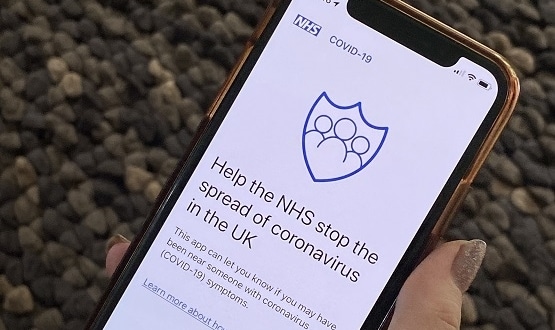Trials of NHS contact-tracing app ‘very encouraging’
- 18 September 2020

Trials of the revamped NHS Covid-19 contact-tracing app have been “very encouraging”, the managing director of the app has said.
Speaking at parliament’s science and technology committee on 17 September, Simon Thompson said NHS Test and Trace should be “encouraged by our learnings” but did not provide figures on the number of people who had downloaded the app.
Instead figures and evaluations from the trials will be published “as soon as practical after our launch”.
“Based on the international uptakes, where everyone goes between 10% and 30%, and based on the results we have seen we should optimistic about what we can do,” he said.
“It’s similar to what we have always said – the more people that use the app the better.
“The thing that we’ve really focused on is making sure citizens are really confident that it works and is actually bringing them real benefit, and based on the trials we have seen we believe that will be the reaction.”
The app is set to launch in England and Wales on 24 September after months of setbacks, including a U-turn on the original operating model.
It is based on Apple and Google’s decentralised model. NHSX has been working with the tech giants to develop a new version of the app after abandoning its original centralised model in June.
Trails of the new-look app were launched in August on the Isle of Wight, which participated in the original trial in May, in the London Borough of Newham and among NHS volunteers.
“The Isle of Wight and Newham are a very different population in terms of how they move, their age and their demographics,” Thompson told the committee.
“What I would say is having visited both of the areas very recently, and spoke to the local teams, is that the adoption has been very encouraging.
“The Isle of Wight in particular, on the grounds that it is the second time that we went back… I think it’s fair to say we thought ‘Let’s see if people are happy to go a second time around’ and, actually, they were.”
The app uses Bluetooth technology to track time and distance between smartphone devices. It also offers a QR code check-in capability, allows users to book a free test and has an isolation countdown timer to remind people to quarantine.
The government is urging businesses including pubs, restaurants, hairdressers and cinemas to ensure they display the NHS QR code posters on entry so customers who have downloaded the app can use their smartphones to easily check-in.
This is designed to allow NHS Test and Trace to contact customers with public health advice should there be a Covid-19 outbreak.
A long road
Since NHSX first confirmed in March it was working on a contact-tracing app it has been plagued by criticism and privacy concerns.
Concerns were flagged during the initial trial of NHSX’s version in May after it was found to have poor success rates in tracking proximity to other devices, leading experts to suggest it could cause people to quarantine unnecessarily.
The government finally announced on 18 June it was abandoning its contact-tracing app and would instead be working with Apple and Google to develop a new version – something experts had been urging for months. A trial of a revamped app, based on Apple and Google’s technology, was launched on 13 August.
The ongoing issues faced by NHSX have not prevented other countries from releasing their own contact-tracing app, many based on Apple and Google’s technology from the offset.
Recently, Northern Ireland became the first country in the UK to release its contract-tracing app, which uses the exposure notification APIs developed by Apple and Google. NHS Scotland became the second country to release its contact-tracing app on 10 September.
For a more in-depth look at the contact-tracing app and what went wrong take a look at our timeline of events here.




